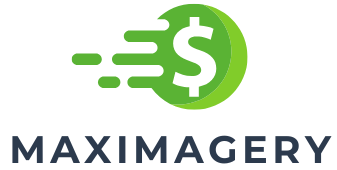Table of Contents
ToggleGetting into NYU Medical School feels a bit like trying to find a unicorn in Central Park—rare and elusive. With its prestigious reputation and cutting-edge research opportunities, it’s no wonder aspiring doctors are flocking to this elite institution. But what’s the real scoop on the acceptance rate?
Understanding the odds can be as confusing as deciphering a doctor’s handwriting. NYU Med’s acceptance rate is a key factor in the application process, and knowing it can help hopeful candidates strategize effectively. So, if you’re dreaming of donning that white coat, buckle up. This journey is packed with insights that’ll prepare you for the ride ahead.
Overview of NYU Med School Acceptance Rate
Gaining admission to NYU Medical School is challenging due to its competitive nature. The acceptance rate for recent application cycles hovers around 2.8%, indicating the rigorous selection process. Each year, thousands of applicants vie for a limited number of spots, highlighting the need for strong academic credentials and exceptional experiences.
Candidates’ average GPA typically stands at 3.78, and the average MCAT score is around 517. Such statistics reveal the high-performing candidate pool aspiring to secure their place. Importantly, NYU evaluates not just grades but also unique qualities such as leadership and resilience.
A holistic approach emphasizes personal statements and letters of recommendation, which significantly influence admissions decisions. Getting familiar with previous acceptance trends can aid applicants in crafting their applications strategically. Understanding the importance of research and clinical experience also plays a crucial role in demonstrating commitment to the medical field.
Statistical insights suggest that underrepresented minorities may face unique barriers in this competitive landscape. NYU’s commitment to diversity has resulted in initiatives aimed at supporting various applicants. Schools like NYU emphasize inclusivity, creating opportunities for candidates from different backgrounds.
Overall, NYU Medical School’s acceptance rate reflects both the institution’s prestige and the dedication required from aspiring medical students. Candidates must approach the application process with thorough preparation and determination to enhance their chances of admission.
Factors Influencing Acceptance Rates

Multiple factors influence the acceptance rates at NYU Medical School. Understanding these elements can help applicants tailor their approach.
Academic Requirements
Academic performance stands out as a key factor in admissions. The average GPA of accepted students is 3.78, while the typical MCAT score hovers around 517. Exceptional grades and test scores don’t guarantee acceptance, but they play a significant role in a competitive pool. In combination, strong academics set a foundation for applicants. Many candidates also showcase advanced coursework, such as upper-level science classes, which NYU values. High academic standards not only reflect student readiness, but they also demonstrate the ability to thrive in rigorous medical training.
Extracurricular Involvement
Extracurricular activities contribute significantly to a candidate’s profile. Participation in relevant experiences like volunteering at hospitals or conducting research enhances one’s application. Additionally, leadership roles in clubs or organizations illustrate commitment and personal growth. Extracurriculars provide opportunities for skill development and networking, both critical in medicine. NYU appreciates diverse experiences that reflect character and resilience. Candidates with a well-rounded portfolio often stand out in a competitive landscape, providing a holistic view of their potential beyond academics.
Application Process
The application process for NYU Medical School requires careful planning and attention to detail. Understanding the timeline and deadlines proves essential for aspiring applicants.
Timeline and Deadlines
NYU Medical School typically opens its application cycle in June each year. Submit the primary application through the American Medical College Application Service (AMCAS) by the end of July. Secondary applications usually go live shortly after the primary deadline. Candidates should check their email frequently for updates. Interviews take place from September to April, making it crucial to prepare in advance. Final decisions on admissions occur in late March, with offers extending until early April. Heeding these dates allows candidates to navigate the process effectively.
Required Documentation
Required documentation for NYU Medical School includes several key components. Applicants must provide a completed AMCAS application, including official transcripts from all post-secondary institutions. A personal statement highlighting experiences and motivations for pursuing medicine is crucial. Letters of recommendation from individuals who can attest to an applicant’s abilities and character further enhance the application. Supplemental essays demonstrate a candidate’s fit with NYU, showcasing unique perspectives. Thoroughly assembling these documents leads to a stronger application that reflects an applicant’s dedication and readiness for medical school.
Historical Trends in Acceptance Rates
The acceptance rate at NYU Medical School has remained notably low over recent years. Recent statistics show that it hovers around 2.8%, indicating a consistently competitive environment for candidates. Data from previous cycles illustrates fluctuations in acceptance rates, which often correlate with the number of applicants.
In 2020, the total number of applicants surpassed 10,000, leading to an even narrower acceptance rate as more aspiring medical professionals sought admission. The trend reflects the school’s growing prestigious reputation, further attracting a high-performing applicant pool with an average GPA of 3.78 and MCAT score of 517.
Acceptance rates have also revealed disparities among various demographic groups. Historical data highlights the importance that NYU places on diversity, with initiatives aimed at supporting underrepresented minorities. This commitment influences overall acceptance patterns, showcasing an evolving landscape in medical education.
Moreover, fluctuations in applicant qualifications contribute to changes in acceptance rates. As academic standards rise, candidates exhibit increased competitiveness. The holistic review process remains pivotal, where NYU evaluates academic achievements alongside personal qualities like leadership and resilience.
Tracking these trends assists prospective applicants in strategizing for the future. Historical data serves as a valuable foundation for understanding the dynamics of NYU’s admission process. Applicants can leverage insights from recent trends to enhance their profiles and adapt their strategies effectively in light of evolving standards.
Comparison with Other Medical Schools
NYU Medical School’s acceptance rate of 2.8% stands as one of the lowest among U.S. medical schools. Harvard Medical School, for instance, has an acceptance rate of approximately 3.3%, while Stanford University School of Medicine follows closely at around 2.5%. Several other prestigious institutions, such as Johns Hopkins University School of Medicine, maintain similar competitiveness, with acceptance rates hovering around 3%.
Typical applicants at NYU hold an average GPA of 3.78 and an MCAT score of 517, reflecting high academic performance. In contrast, Harvard’s average GPA is around 3.9, and their MCAT averages average about 519. Such stringent academic requirements highlight the caliber of applicants sought by these elite institutions.
Diversity initiatives are critical to NYU’s admissions strategy. In comparison, schools like Stanford emphasize a robust commitment to diversity and inclusion, actively seeking underrepresented minority students. Both NYU and Stanford adopt holistic review processes that consider not only academic prowess but also personal qualities, leadership experiences, and extracurricular activities.
Gaining admission to any top medical school requires meticulous planning and preparation. NYU’s application timeline, which begins in June, mirrors that of many other schools, with primary applications due by the end of July. Interview seasons typically run from September through April, aligning with broader medical school timelines.
Understanding acceptance trends informs prospective students about the competitive landscape. NYU experiences increasing applicant numbers each year, reaching over 10,000 in 2020. Tracking these numbers aids candidates in refining their application strategies to enhance their chances of admission.
Navigating the path to NYU Medical School demands resilience and strategic planning. With an acceptance rate of around 2.8% the competition is fierce. Aspiring medical students must not only excel academically but also showcase their unique qualities and experiences. Understanding the holistic review process is essential for candidates aiming to stand out in a crowded field.
As the landscape of medical school admissions continues to evolve it’s crucial for applicants to stay informed about trends and requirements. By focusing on a well-rounded application that highlights both academic and personal strengths candidates can enhance their chances of success. With dedication and thorough preparation the dream of attending NYU Medical School can become a reality for those who are determined.





